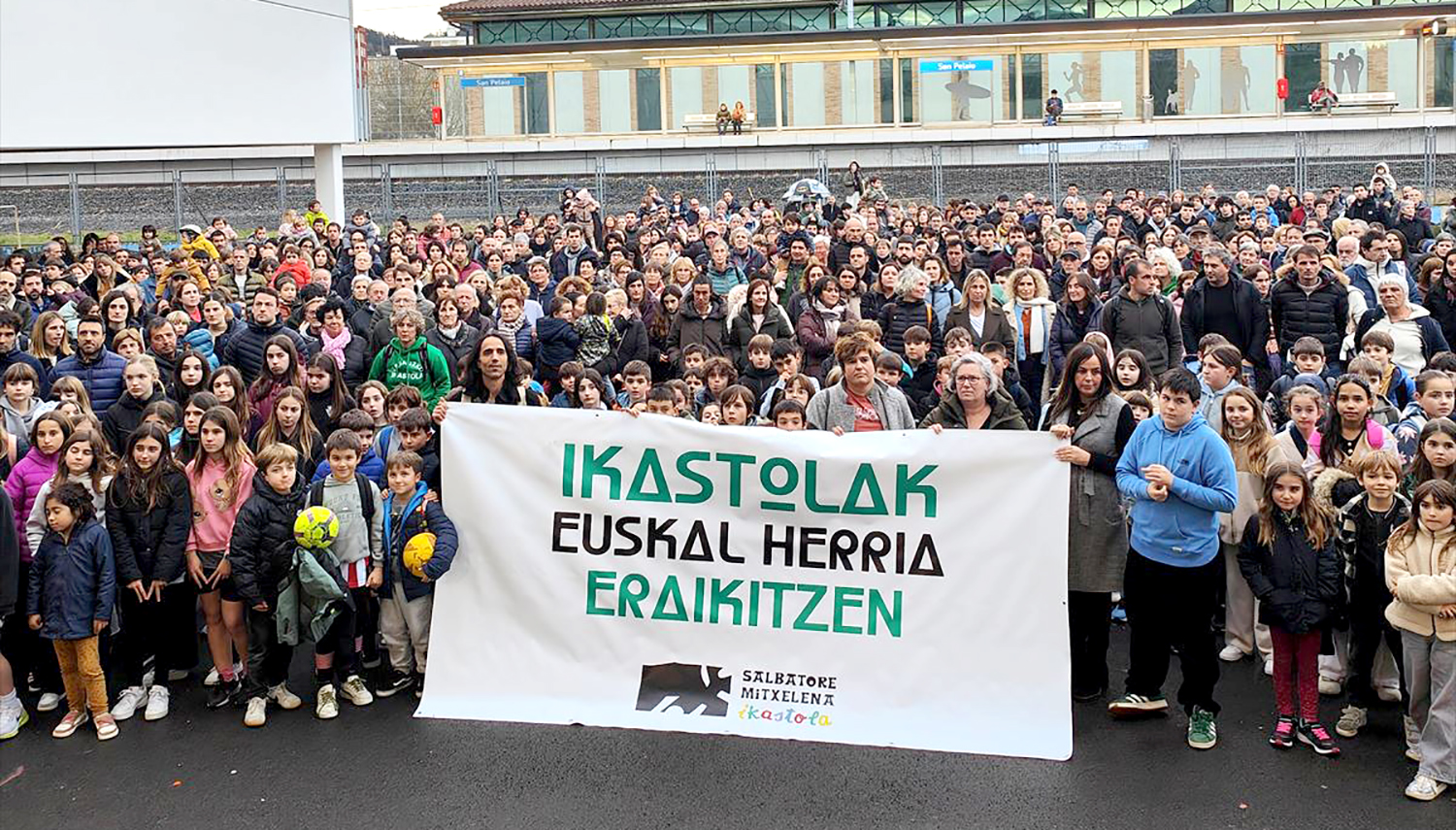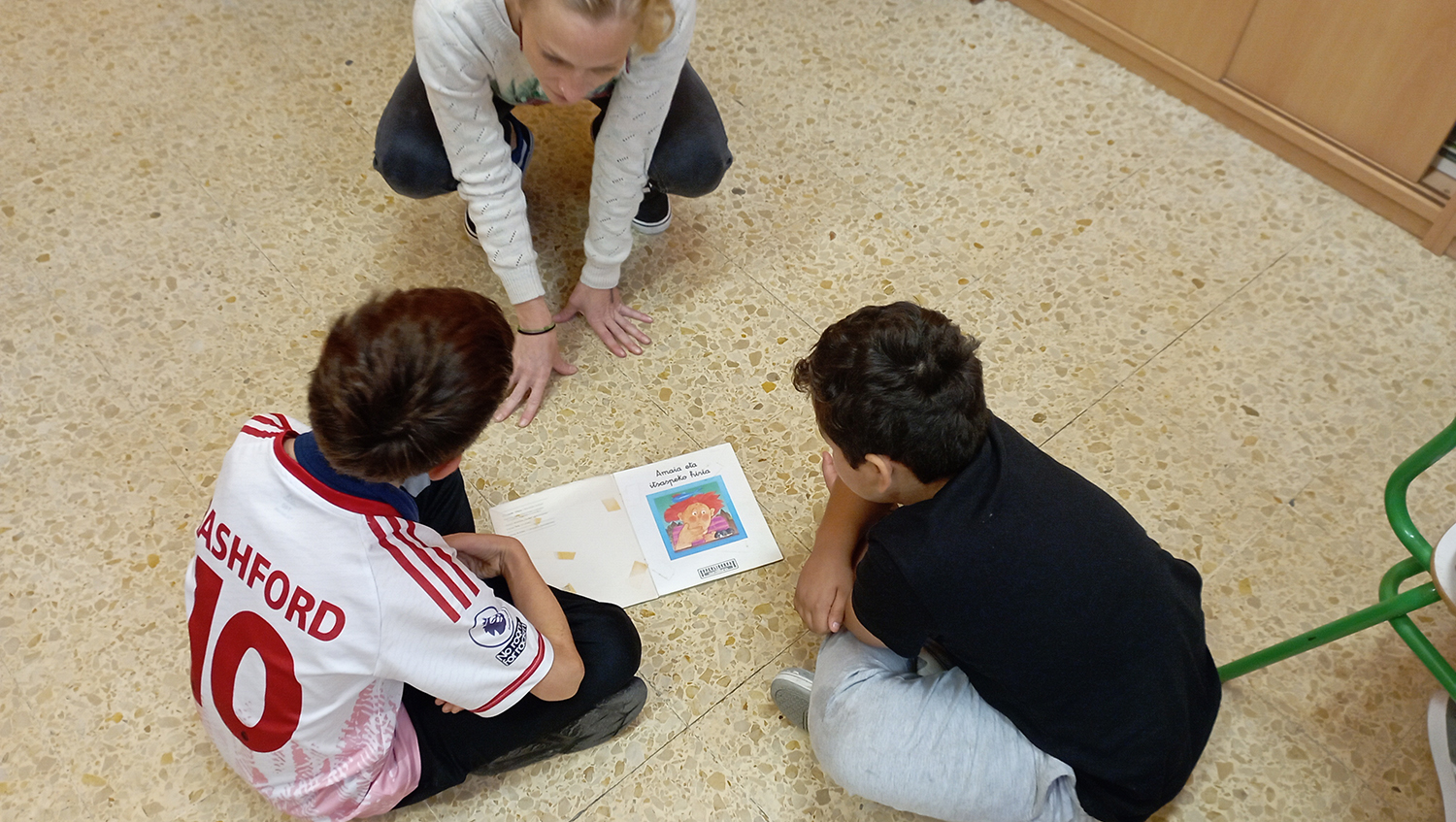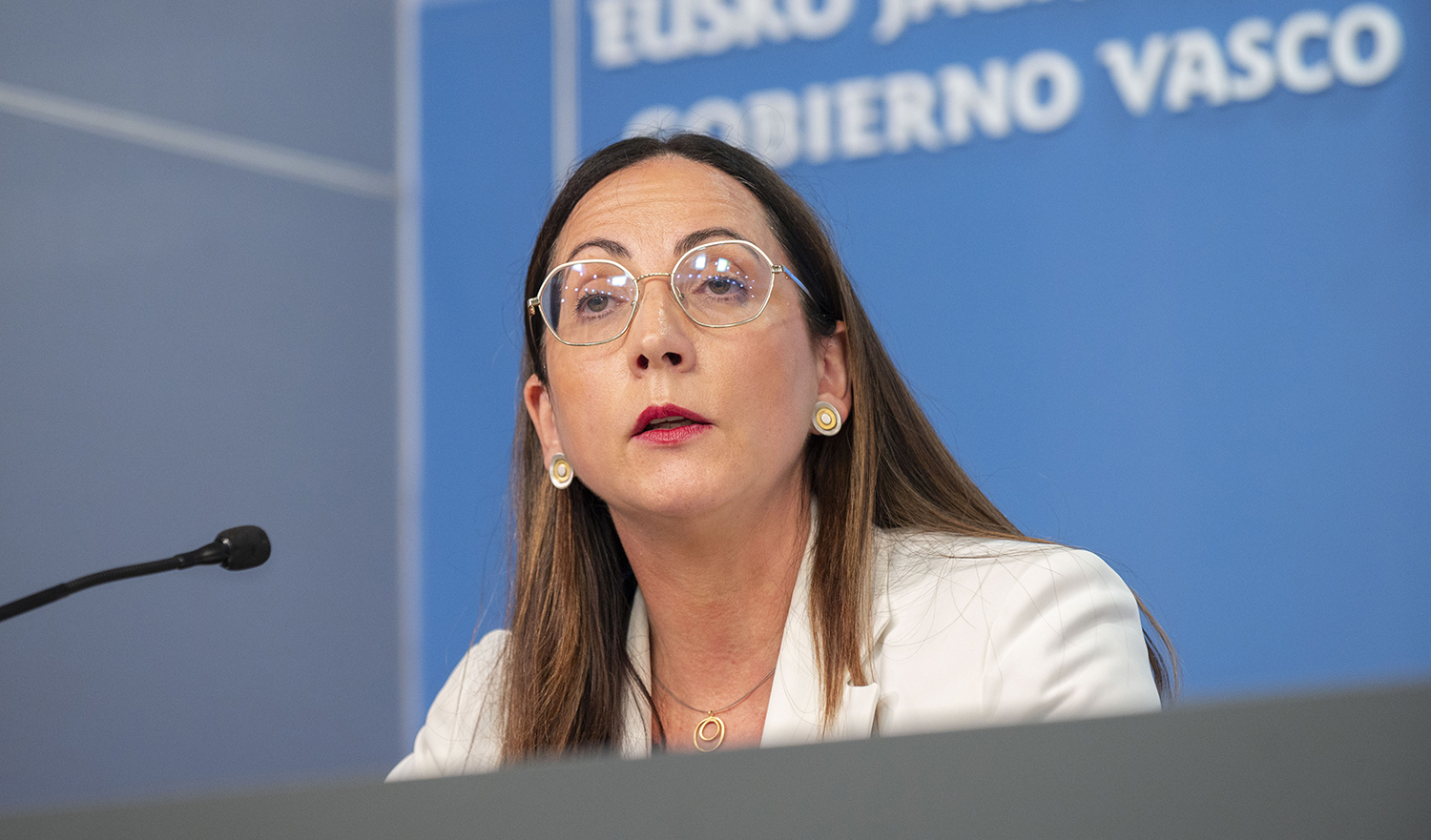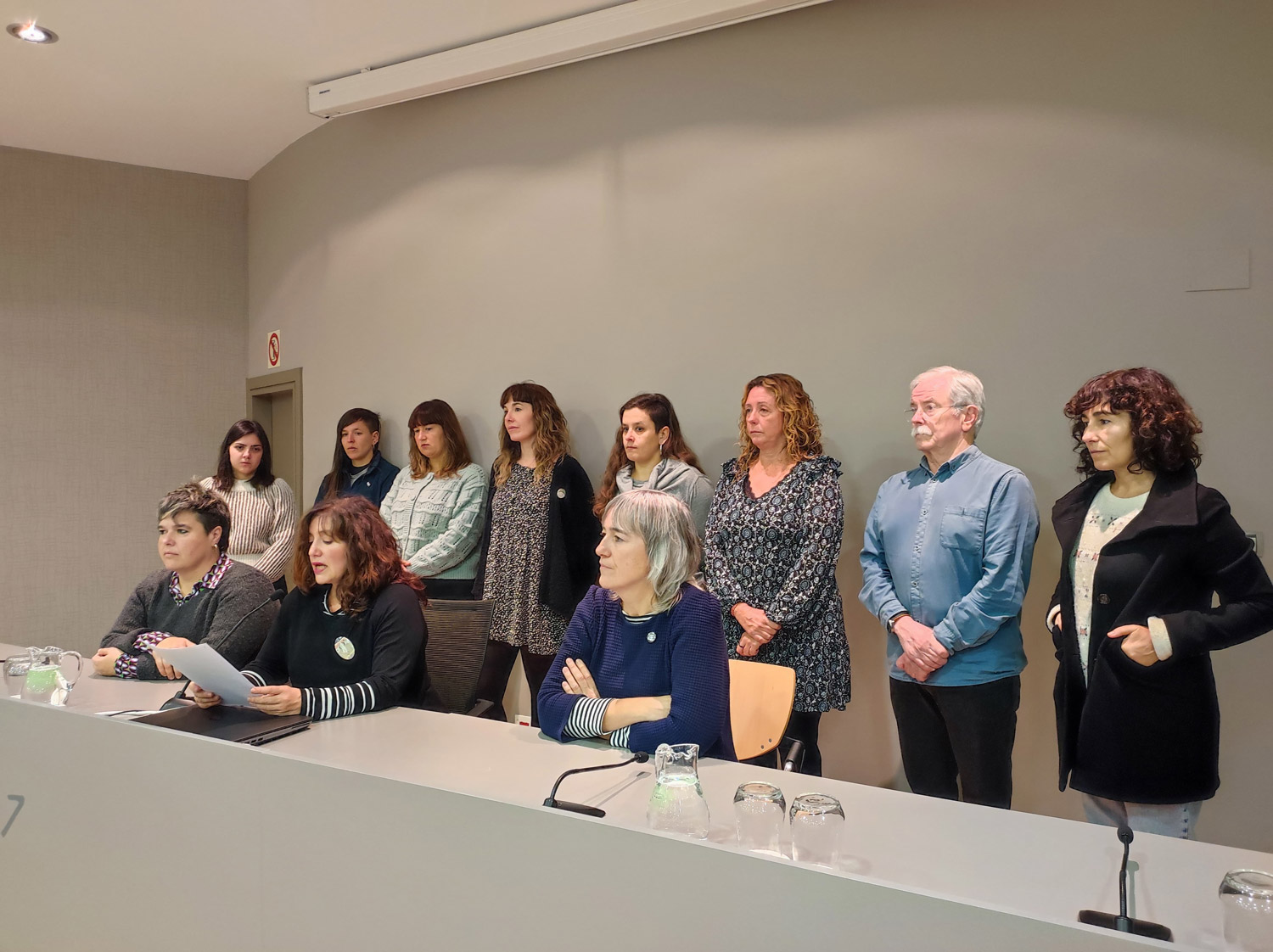The PNV-PSE adopts an Education Act against all opposition
- The day comes: This Thursday the Education Act was approved in the Basque Parliament, supported only by the PNV and the PSE. In the court of Parliament, Harro and Euskal Herrian Euskaraz have protested about the Basque Public School. Like the last education law passed thirty years ago, it advances without the consensus of the parties.

"The 1993 educational law and the publication process was the result of the pact between the Socialist Party and the PNV without the participation of the other parties and the educational community," said EH member Bildu Ikoitz Arrese in ARGIA. Thirty years later, it seemed that the new educational law was going to have a greater political consensus, but Elkarrekin Valencia-IU fell first (arguing that the current model of concertation is perpetuated) and EH Bildu at the last moment (arguing that the law will maintain the current linguistic models). 90% of parliamentary political representation supported the education pact last year (which was the starting point of the law), but only 54% ultimately supported the law (PNV and PSE).
During these days, the Education Advisor, Jokin Bildarratz, has reiterated that the public school is the central axis of the law, responding to the criticisms that have been made to it, and has stressed that the 43 measures defined in the educational pact have already begun to be implemented.
The educational community, against
Also on the street, the law has begun in a climate of confrontation and discrepancy. Proof of this are the hearings before the Basque Parliament during the vote on the new education law: "Basque education at once!" Under the motto "Euskal Herrian Euskaraz" he called at 9:00 hours to plant the educational law. They are trying to chain themselves in Parliament. "No to this education law!" at 11:00 the Euskal platform Eskola Publikoa Harro met.
Precisely the agents of the public school and the Basque Country have been the most critical of the law. The first say that the law rewards concerted schools and damages public schools. Just this week, Lurdes Imaz, coordinator of EHIGE, has ratified this idea in Berria: to compete with the concerted network that will be better funded with public money, which will be "worse than before" with this law.
The actors around the public school and the Basque Country have been the most critical of the law. The first say the law rewards concerted schools and harms public school
The Council of Euskalgintza has also made statements this week: it complains that the current language models are being maintained and it denounces that most of the contributions made by the Council have not been included in the law, and that those collected are very inaccurate. This law of education "is a missed opportunity to euskaldunify future generations." In addition, we have seen many agents supporting this manifestation of denunciation (EHIGE, HEIZE, Ikastolen Elkartea, ELA, LAB, STEILAS, AEK, Euskaltzaleen Topagunea, Euskal Herrian Euskaraz, Hezen, UEU…).
The Ikastolas Federation has also spoken against the law. For not having taken the steps required for the Euskaldunization of the students ("the bill does not contemplate the concretion for the achievement of a generalized immersion model and reincludes linguistic models; and does not include the Basque Curriculum"), and for the lack of concretion of the Basque Educational Service that covers both public and concerted centers: "It is not guaranteed that all the centres that will be part of the Public Education Service are in the same condition."
What does the law mean?
The law had three challenges: overcoming the dual system of public and concerted centers, making a leap in the Euskaldunization of students and ending the segregation of students. But does the law really have effective measures to end concertation, to ensure a better Euskaldunification and to curb segregation? In this article we have tried to answer these questions and explain the details, tempos and antecedents of the law (remember that before reaching the subarea Jokin Bildarratz Cristina Uriarte wanted to carry out an educational law). ARGIA has closely followed the whole process of the CAV Education Act, and in this channel you will find all the information.
Why concerted teaching?
The new Education Act adopted by the CAV against most public school officials aims to ensure that concerted education is free of charge through the financing of public authorities. The Spanish State has also announced a significant increase in public... [+]
Hunters, Marianistas, Niño Jesús, CEU San Pablo - Virgen Niña, Carmelitas, Presentation of Mary, Vera Cruz, NClic, San Viator, Escorapias, Scholapios, Bárdarias, Nazareth, Immaculate Conception, Hogar San José, Egibide. More Olabide by Eusko Ikastolen Batza. Finally, the... [+]
In response to the numerous statements of the new Education Advisor, Begoña Pedrosa, Law 17/2023 on Education will be implemented at the beginning of the course, approved in Parliament with the sole support of the PNV and the PSE. This implementation will entail the application... [+]
Who orders us ...?
The Basque Government has just been set up and the Minister for Education will be Begoña Pedrosa. Being a vice-counselor in the previous legislature and being one of the founders of the new Education Law passed last December, we are allowed to ask some... [+]
The recently passed Education Act is as bad as it is new. Throughout the processing process there has been a broad social sector against the spirit of this law, and this opposition has been greater in the face of its adoption. We want to make public the assessment and reflection... [+]
The new Education Act, which had to be born of consensus, was adopted in anger and disagreement. The lack of agreement is due to the public-private question and linguistic models. A lot of pity.
In this we follow the Spanish model, because in the CAPV we are not able to lay... [+]
Those of us who write and sign these lines are young people between 20 and 26 years old who have joined us in the context of the generational relay of Euskalgintza. In our case, we have decided to contribute to the struggle of the Basque Country in the Basque Country from... [+]

















